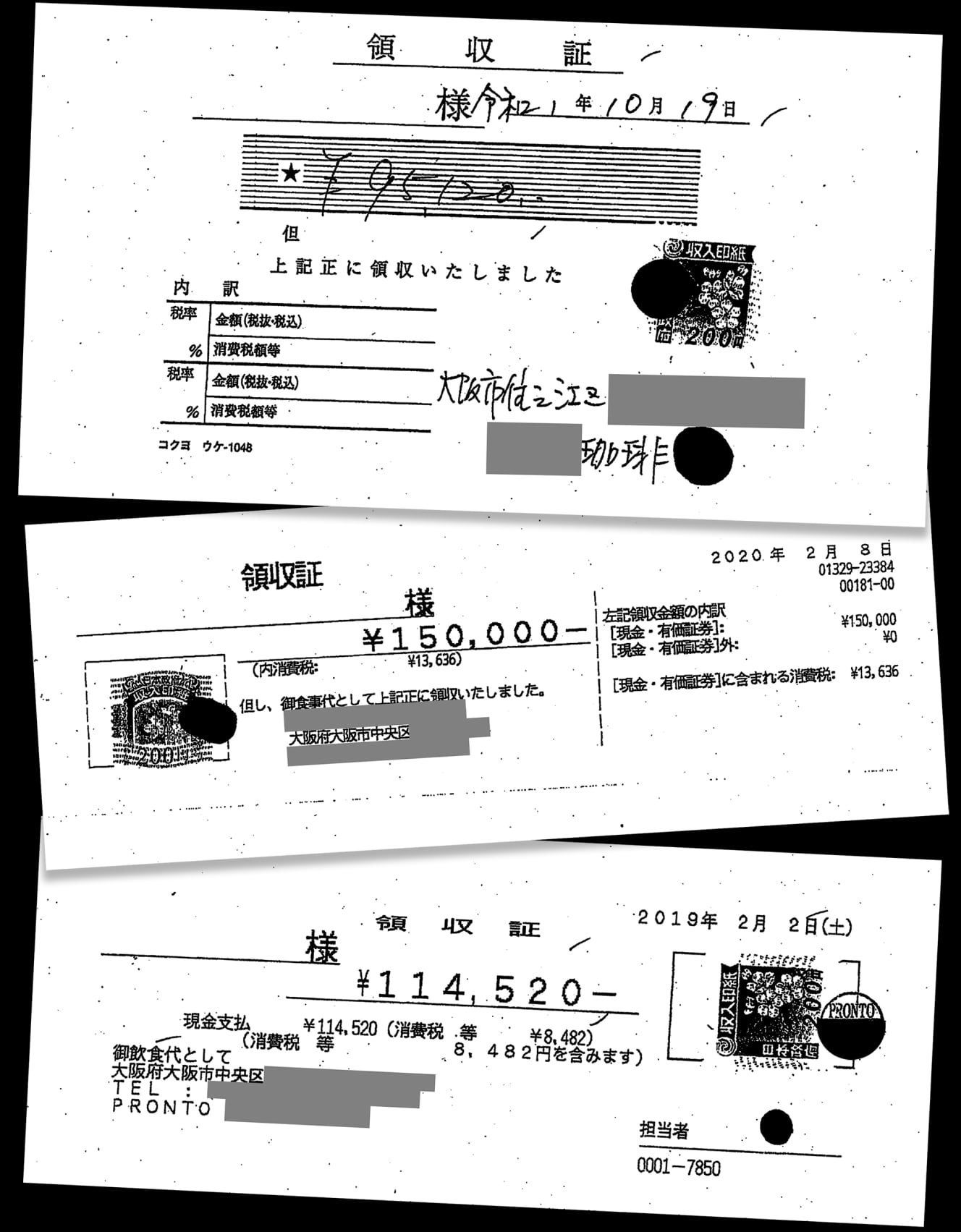Over 90,000 yen spent at a coffee shop, but “no address, no proviso”…The Japan Innovation Party, a leading executive: “The contents of the receipts are too suspicious.
When we looked into the political funds of House of Councilors member Toru Azuma, head of the Reform Headquarters, we found a lot of "no name" and "no signature" on the receipts.

The issue of politics and money is not limited to the ruling Liberal Democratic Party, which has been rocked by a kickback scandal involving faction party income. The opposition party has also come under scrutiny, and FRIDAY’s interviews with House of Councilors member Toru Azuma, 57, of The Japan Innovation Party, uncovered a series of receipts that made one tilt one’s head back in puzzlement.
Azuma founded the Osaka Restoration Association with Hashimoto Toru and others and served as chairman of the general affairs committee.” In 2010, he expressed his willingness to run for the presidency of The Japan Innovation Party and is currently serving in the important position of head of the party’s reform executive headquarters.
Mr. Azuma is a powerful executive. An examination of the receipts attached to the political fund balance reports from 19 to 21 revealed that 23 of the 133 receipts were unaddressed and 36 had no provisos. Some of the receipts were handwritten commercial receipts, even though he spent over 90,000 yen at a coffee shop.
Under the Political Funds Control Law, political organizations of Diet members are required to attach a copy of the receipt stating the purpose, amount, date, etc., for expenditures of 10,000 yen or more. Mr. Azuma’s receipts could be in violation of the law. Moreover, there are many omissions, and in some cases, even large sums of money are not addressed to the right person,” said an Osaka labor union official who monitors political funds.
This is not the only example of sloppy income and expenditure reports. Azuma submitted political fund balance reports under the names of three political organizations, including “Azuma Toru Office” and “Osaka Sub-Capital Study Group. However, in seven cases, receipts addressed to “Toru Azuma’s Office” were attached to the “Osaka Sub-Capital Research Association” report.
The Toru Azuma Office responded as follows.
The Toru Azuma Office responded as follows: “We have confirmed that the office staff failed to ask the restaurant to write the name of the recipient on the receipt. In the future, we will ask the other party to clearly write down the name of the person to whom the receipt is addressed and to confirm the address.
Regarding the matter of spending over 90,000 yen at the coffee shop and not having a handwritten address, he responded, “This shop is a coffee shop where lunch is served at noon and the staff is not allowed to write on the menu.
The restaurant is a coffee shop during the day and a restaurant that serves banquets at night. During the day, receipts are issued at the cash register on the first floor of the restaurant, but at night the cash register is closed, so the receipts were issued by hand.
On the website, the store is open until 5:00 p.m. Upon request, they also serve evening meals on the second floor of the store. Hiroyuki Kamiwaki, a professor at Kobe Gakuin University and an expert on political funds, said.
If you collect receipts without an address, it is impossible to prove who spent the money, and it is easy to make slush funds. Submitting the receipts without writing them down is as if the government has no intention of complying with the law.
The signature policy of the Restoration Association is “self-effacing reform. The executives should take the initiative and set an example.

From the December 22, 2023 issue of FRIDAY
Interview and text by Masayoshi Katayama (journalist): Masayoshi Katayama (Journalist) PHOTO: Takeshi Kinugawa